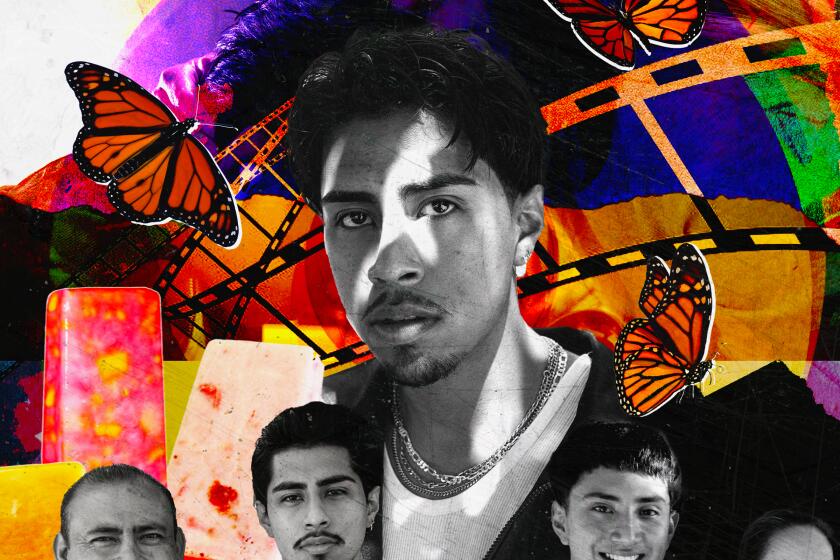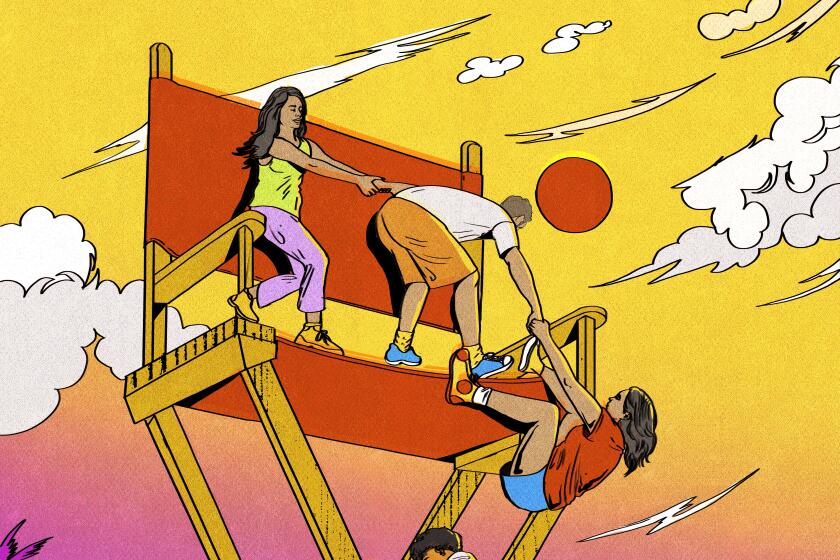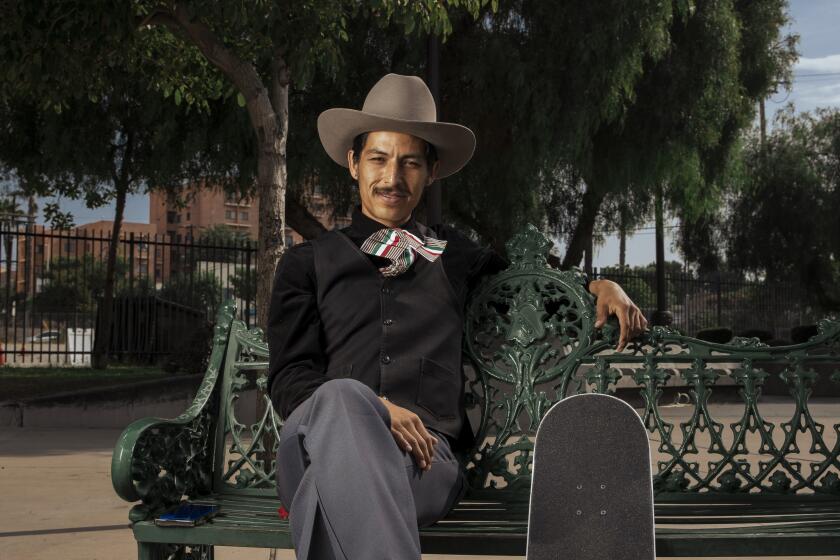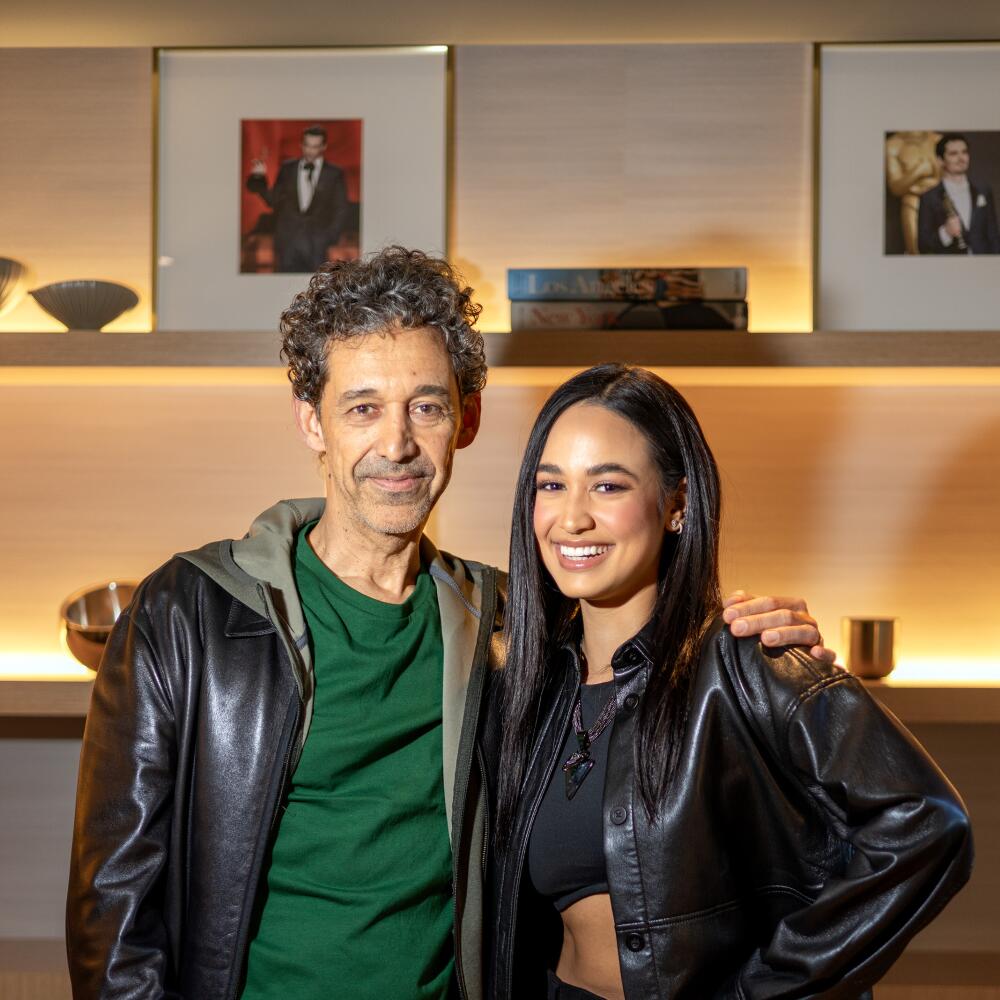
What is Christmas without a little bit of family drama? A new twist on meeting your partner’s family has arrived this holiday season in “How the Gringo Stole Christmas,” directed by Angel Gracia and starring George Lopez.
The holiday comedy, which was released Dec. 1, is Gracia’s second major film after his directorial debut, “From Prada to Nada,” in 2011.
Lopez plays Benny, the patriarch of a Mexican family from East L.A.
When Benny’s daughter Claudia, played by Emily Tosta, brings home her white boyfriend Leif, played by Jack Kilmer, it creates tension in his East L.A. home during the Christmas season.
A DACA recipient from a humble background, Ezekiel Pacheco’s story bears a striking resemblance to that of Nico, his character in ‘At the Gates.’
For some of the film’s supporting roles, Gracia looked to popular social media figures like content creators Justice Alexander, Francisco Carillo, Jairo A. Orozco and Bryan Rojo. The film also casts queer influencer Anthony Zuniga as Claudia’s gay ex-boyfriend, Javier.
Ahead of its release, Gracia and Tosta spoke to De Los about the film.
The following interview has been edited for clarity and length.

How was the experience for you both in directing and acting?
Gracia: My cast was just lovely. Shooting a movie in three weeks in Jackson, Miss., is not easy, so it helps that you have a good cast.
Tosta: I think the reason why we were able to create such a safe and great environment for all of us to play around in is because [Gracia] was able to allow us the space to be creative and to step into our characters. He was so collaborative all the time and so receptive.
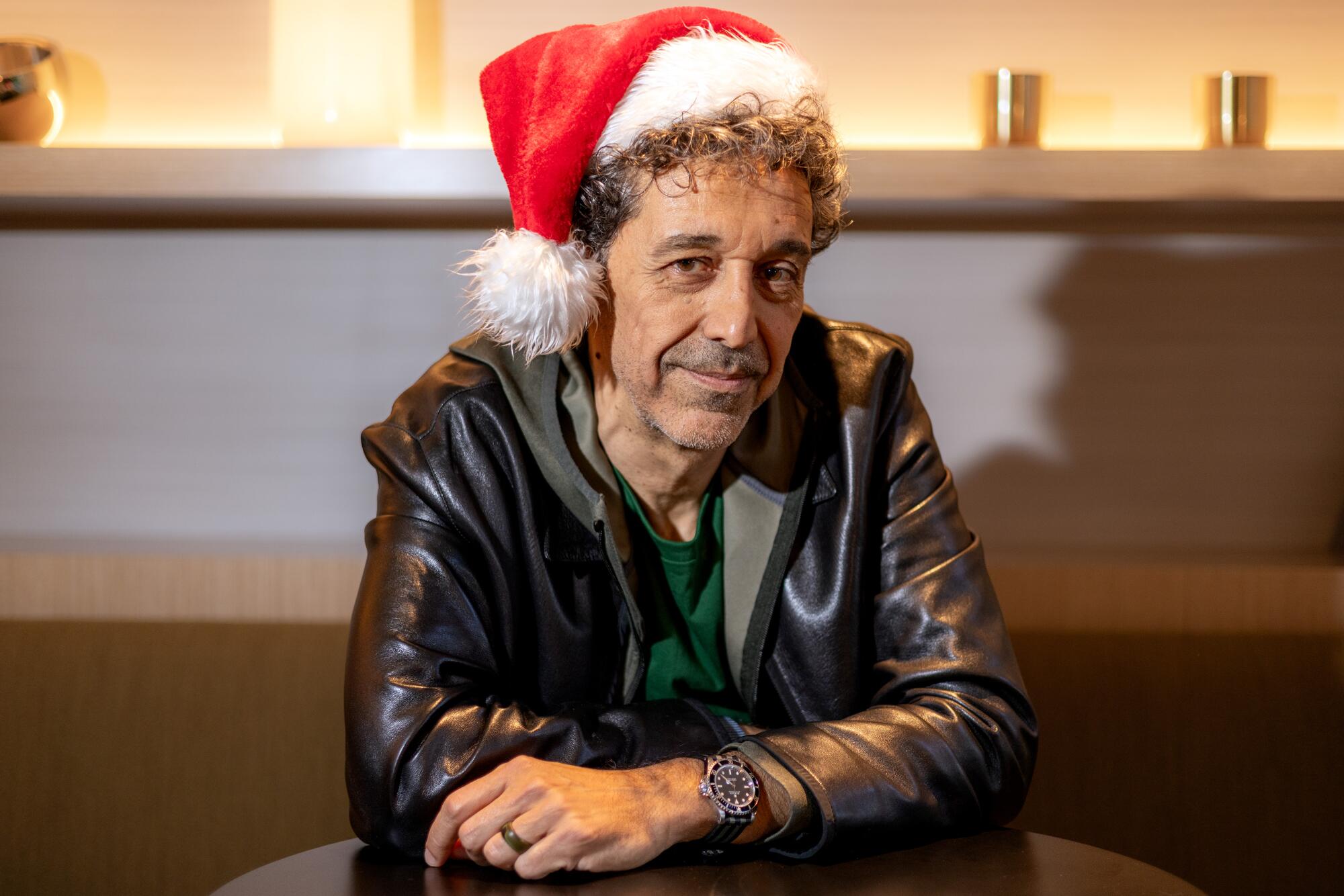
The film features common tropes found in movies where a parent dislikes their child’s partner. What specifically stands out in “How the Gringo Stole Christmas”?
Gracia: I think it’s the reverse of the usual thing, right? You’re not used to seeing the white boy being the foreigner in that place. It’s usually someone of a different race.
Tosta: We also don’t really get to see a lot of Latino families on television and on film. And I think it’s really nice to be able to immerse ourselves in that world.
This is truly an all-Latino cast with Jack Kilmer being the only white character.
Gracia: [Kilmer] told me, “I just love the idea of being the fish out of water in this experience.”
According to the recent report from the Annenberg Inclusion Initiative at USC, Latino representation in Hollywood has not shown any meaningful growth in the last 16 years.
Tosta: I remember sometimes we would be sitting around in between takes waiting for a different setup, and he would be like, “Wait, what did George just say?” And I was like, “Wow, you really are your character right now.”
Angel, you were talking to me earlier about the three vatos, which represent the three wise kings. Tell me a bit more about them.
Gracia: They are content creators, very popular ones. I was considering mix-matching with some actors and some influencers. As I met them I realized that it was better to have them all being from the same group of influencers. They have chemistry going on between them. They can create their own banter.
[Zuniga], in particular, had a difficult job. He had to play a fine line between different things going on, and be a deceiving character at the same time. I did not want a straight person to play a gay character in the movie.
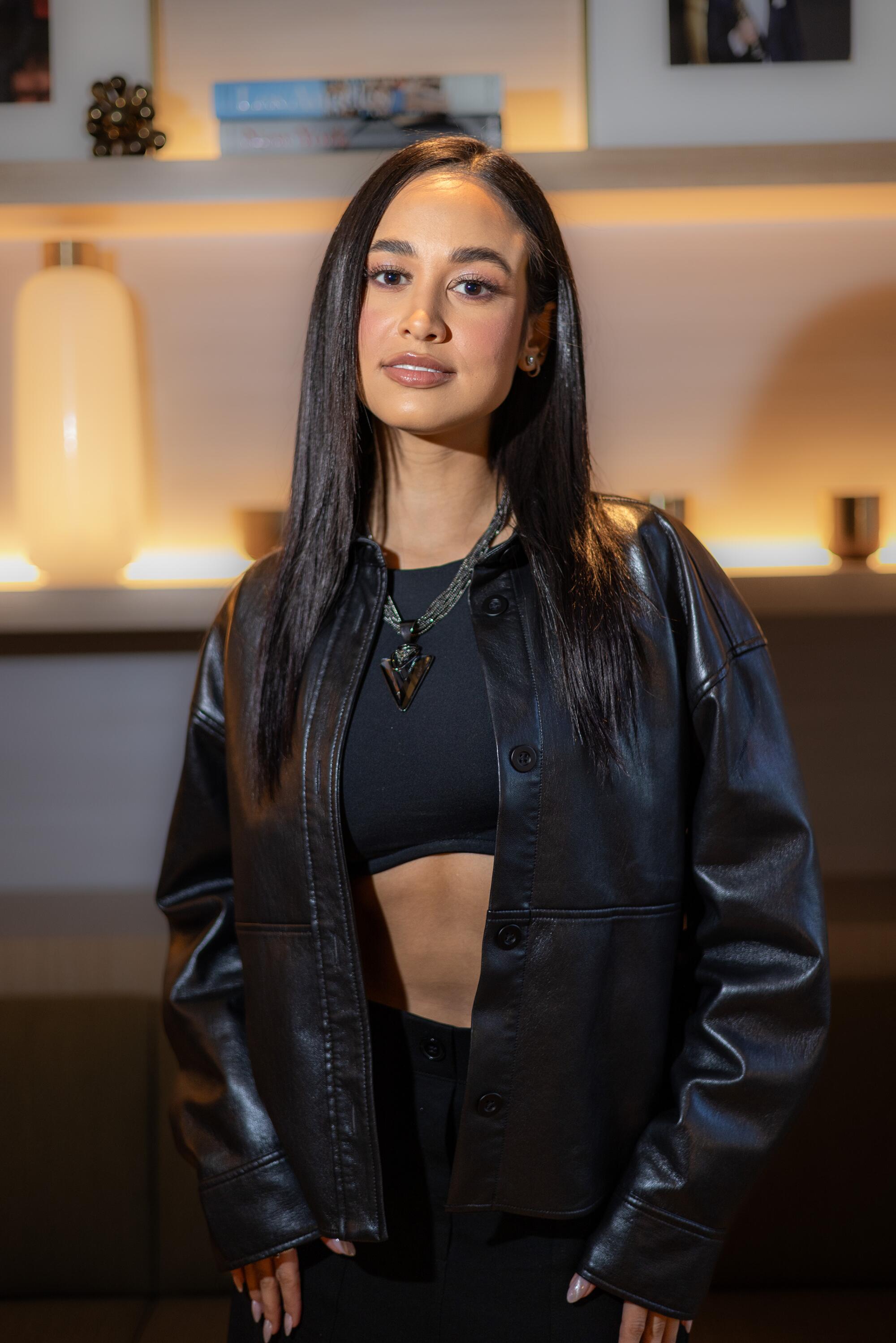
Emily, how was it like to have your character butt heads with George’s character?
Tosta: I can speak a little bit of truth to it because of my own experience with my father. We’ve had disagreements like that before. At the end of the day, no matter what the conflict is, you love each other.
I think my relationship with George outside of the screen helped us a lot because we were also having friction as if we were like father and daughter.
Gracia: But what was the biggest challenge working with Lopez?
Tosta: Keeping my laughter together. I have never in my entire career broken in a scene ever. And that was a challenge in this film because he was cracking so many jokes and so much of what he did was improv.
What does having a holiday movie with a Latino cast mean to you?
Tosta: I remember that feeling of seeing America Ferrera onscreen, playing Ugly Betty, and saying, “Oh my gosh, if she is doing that, then I can go to the States and do it too!”
Representation is so important, especially when it’s being done in a positive light or from a place of empowerment for people of color.
Steve Corona is a Los Angeles skater who has gone viral on Instagram thanks to videos that show him dressed in what he calls his ‘Pati-Charro’ aesthetic.
Gracia: Humor is a way to do it because he helps kind of break the barrier. For me, the movie is a social commentary on cultures and integration by highlighting why we judge each other by our nation of birth, the color of our skin, our culture. So we’re actually commenting on two things, women’s rights and integration, but we’re flipping it on its axis. So it’s a different way of looking at it with humor.
What do you hope people take away when they watch “How the Gringo Stole Christmas”?
Tosta: I hope that people enjoy themselves, and I hope that it can be family time over the holidays and that they can laugh. But I also hope that people can take away that the main message of it doesn’t matter where you come from, it doesn’t matter what you look like, at the end of the day what really matters is what you have ... in your heart, and who you are, and what you stand for.
'How the Gringo Stole Christmas'
Rating: PG-13, for some suggestive material and language.
Running time: 1 hour, 21 minutes
Playing: In select theaters and available to rent on Prime Video, Vudu and Google Play.
More to Read
The Latinx experience chronicled
Get the Latinx Files newsletter for stories that capture the multitudes within our communities.
You may occasionally receive promotional content from the Los Angeles Times.
